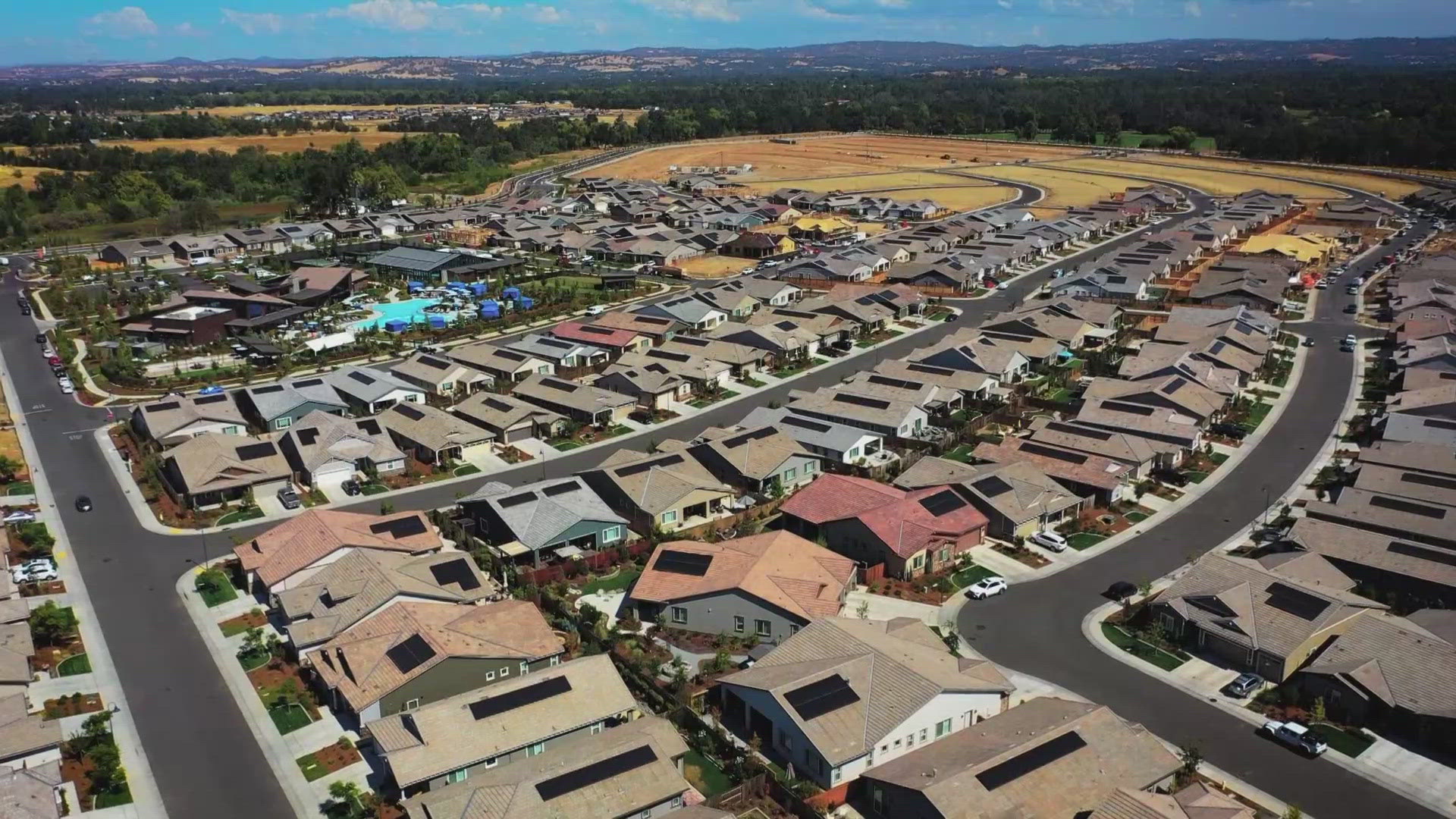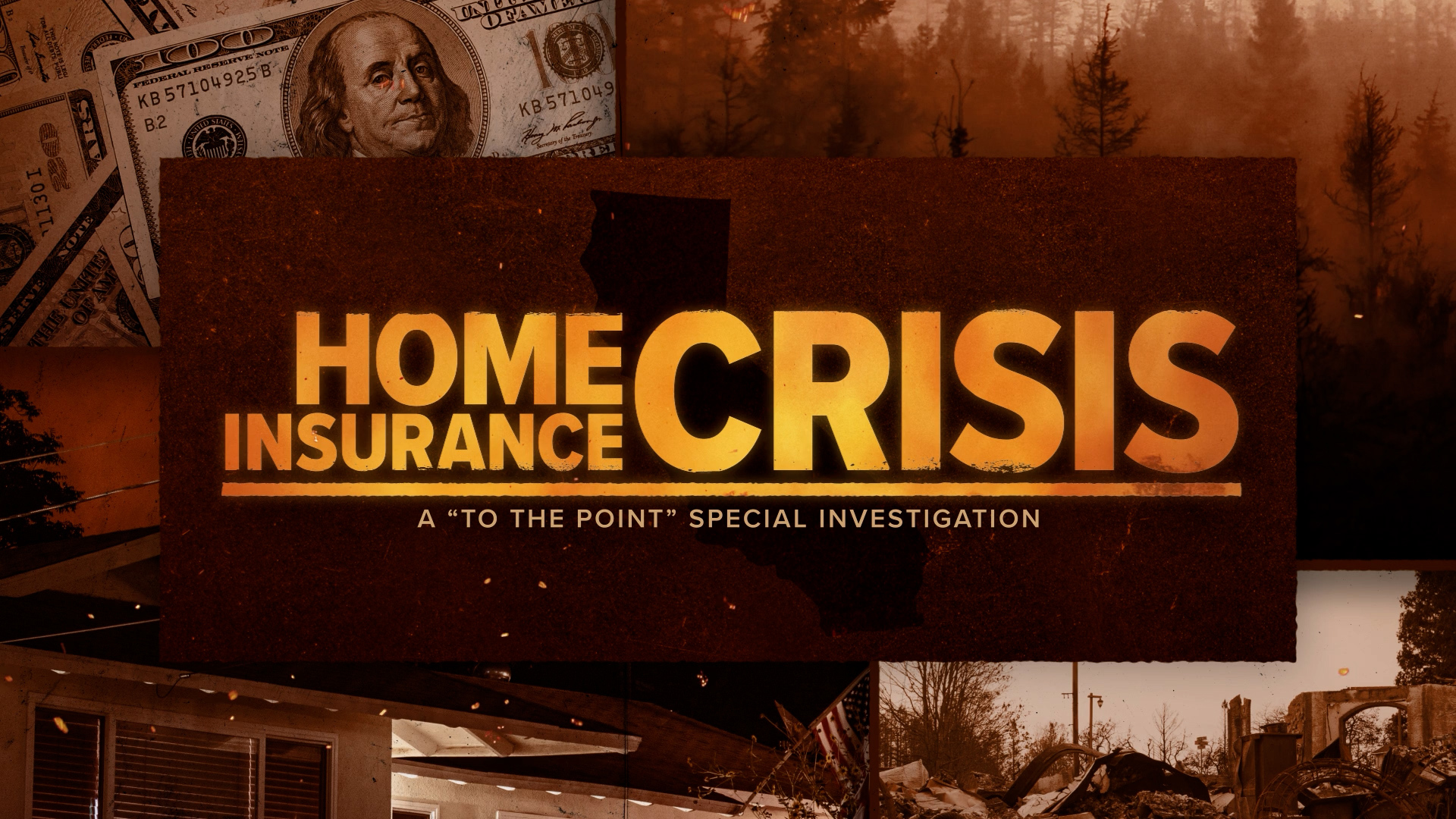SACRAMENTO, Calif. —
'Support consumers, not sell them on something,' is a policy insurance consumer advocate Amy Bach grew into an organization over three decades ago.
"A lot of people contact us because they've had something bad happen,” Bach said.
She co-founded United Policyholders, a nonprofit helping insurance consumers in California and all other states navigate insurance rights, education and preparedness.
ABC10's To the Point host Alex Bell sat down with Bach to find out what homeowners should do if their policy is cancelled.
"A lot of people are reaching out to us here in California saying, 'I can't find insurance,'” said Bach.
She says homeowners have even told her their insurance has gotten so expensive they can’t afford it anymore. In California, more and more homeowners are being dropped from their policies. Companies are citing inflation, government regulation and climate change as some of the issues. Bach says there’s also another reason.
“The bigger driver of what's happening in the insurance market is technology. The technology that insurers are now accessing that make risk look so magnified to them," she said.
Credit scores and aerial imagery are giving insurers a closer look at homeowners.
“...That information is scaring them out of doing what they've always done, which is to insure people's homes in return for premiums," said Bach.
Whether you live in the foothills or the suburbs, it’s likely you or someone you know has received a letter of non-renewal from their insurance company.
Here's some tips on what you should do next.
First, contact your insurance company and find out why you’ve been dropped.
“Ask your insurance companies to give you copies of photos or tell you what it is about your property that is now a problem for them, then give you a chance to fix it," said Bach.
Make sure to send proof of any corrections.
If you are unable to stay with your current insurer, the second thing you should do is start shopping for a new policy right away.
“Two-thirds of the people who lose their homes in wildfires come up short on their insurance for their dwelling, they're underinsured,” said Bach. “The most important thing is to try to insure your home for close to what it would cost to rebuild it from the ground up if it were to be a total loss.”
The third step is finding a good insurance agent or broker who has access to multiple options. Agents and brokers can help homeowners make informed decisions, find discounts and tailor coverage. If you have to choose between insuring your home or the stuff inside it, Bach says always choose your home.
“That means you want to have enough dwelling coverage per square foot... in most parts of California, you want to have at least $250 to $300 a square foot in coverage on your dwelling," said Bach.
Something else to consider is code upgrade coverage.
“That way you get an extra bucket of coverage if you have to make improvements to bring your home up to current code," said Bach.
Homeowners also want to avoid making small claims. Bach says those claims go on homeowners records.
“...These days any agent will tell you that the more claims you have on your record, the harder it is to find an insurance company that will insure you. Is that fair? No. Is it legal? Yes," said Bach.
Reducing the risk of damage in a severe weather event can also help. Bach says having five feet of defensible space, no plants, trees or bushes around your house is standard practice.
Lastly, one of the easiest and cheapest things you can do is use your cellphone to walk through your home and take video inventory. Remember, California rules require insurers to give homeowners a 75-day notice of non-renewal.
United Policyholders has a directory of attorneys, public adjusters, contractors and free educational courses if you are a homeowner that needs help.




















